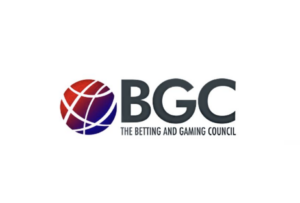A new NHS Health Survey has provided some promising news for the gambling sector in England – the rate of problem gambling has shown a decrease.The comprehensive NHS Health Survey highlighted that the problem gambling rate among adults has dipped to 0.4 per cent, a decrease from 0.5 per cent in 2018. The data further breaks down these figures by gender, showing a decline from 0.8 to 0.6 in men between 2018 and 2021, and a drop from 0.3 to 0.1 in women over the same period.An estimated 22.5 million adults in England partake in some form of betting each month. This includes lottery participation, bingo, casino games, online gambling, and betting on football, horseracing or other sports.
Insights from a Comprehensive Survey
The most recent and comprehensive study of its kind in England, the survey garnered responses from over 3,700 individuals. The Problem Gambling Severity Index (PGSI) and DSM-IV scores were used to assess problem gambling rates among adults. Both individual and combined results from these assessments pointed to a decline in problem gambling rates, affecting tens of thousands of people.This NHS survey’s findings align with the data gathered in the Gambling Commission’s latest quarterly survey, which reported the UK’s adult problem gambling rates to be 0.3 per cent.
BGC’s Call for Technological Intervention
These surveys reinforce the Betting and Gaming Council’s (BGC) urging for operators to leverage technology to identify and engage with vulnerable and at-risk players online, using various markers of harm.The Gambling Review supported this approach by proposing frictionless financial risk checks to mitigate gambling-related harm without inconveniencing the majority of responsible bettors.BGC Chief Executive, Michael Dugher, commented on the findings, “We are highly encouraged by yet another independent study confirming that England’s problem gambling rates remain extremely low by international standards and are indeed on a downward trend. This is despite almost half of all adults enjoying a regular bet.”Dugher also welcomed the government’s recent White Paper for rejecting a blanket approach, asserting, “The study reinforces the fact that the overwhelming majority of millions of punters enjoy betting perfectly safely and responsibly, and punters rightly object to intrusive checks and blanket restrictions.”
Promoting Safer Gambling
While acknowledging the encouraging figures, Dugher stressed there would be no room for complacency, and the BGC would continue to work closely with the government and its members to deliver on the White Paper’s promises and elevate standards.The regulated betting and gaming industry makes a substantial contribution to the economy, generating £7.1 billion, paying £4.2 billion in tax, and supporting 110,000 jobs. BGC members regularly encourage the use of safer gambling tools, with over a million customers now employing some form of safer gambling tool.The BGC has strongly supported the Gambling Review, published last month, as another opportunity to improve standards and promote safer gambling. However, the council has cautioned that any changes resulting from the White Paper must not push gamblers towards the increasingly dangerous, unregulated online black market.












